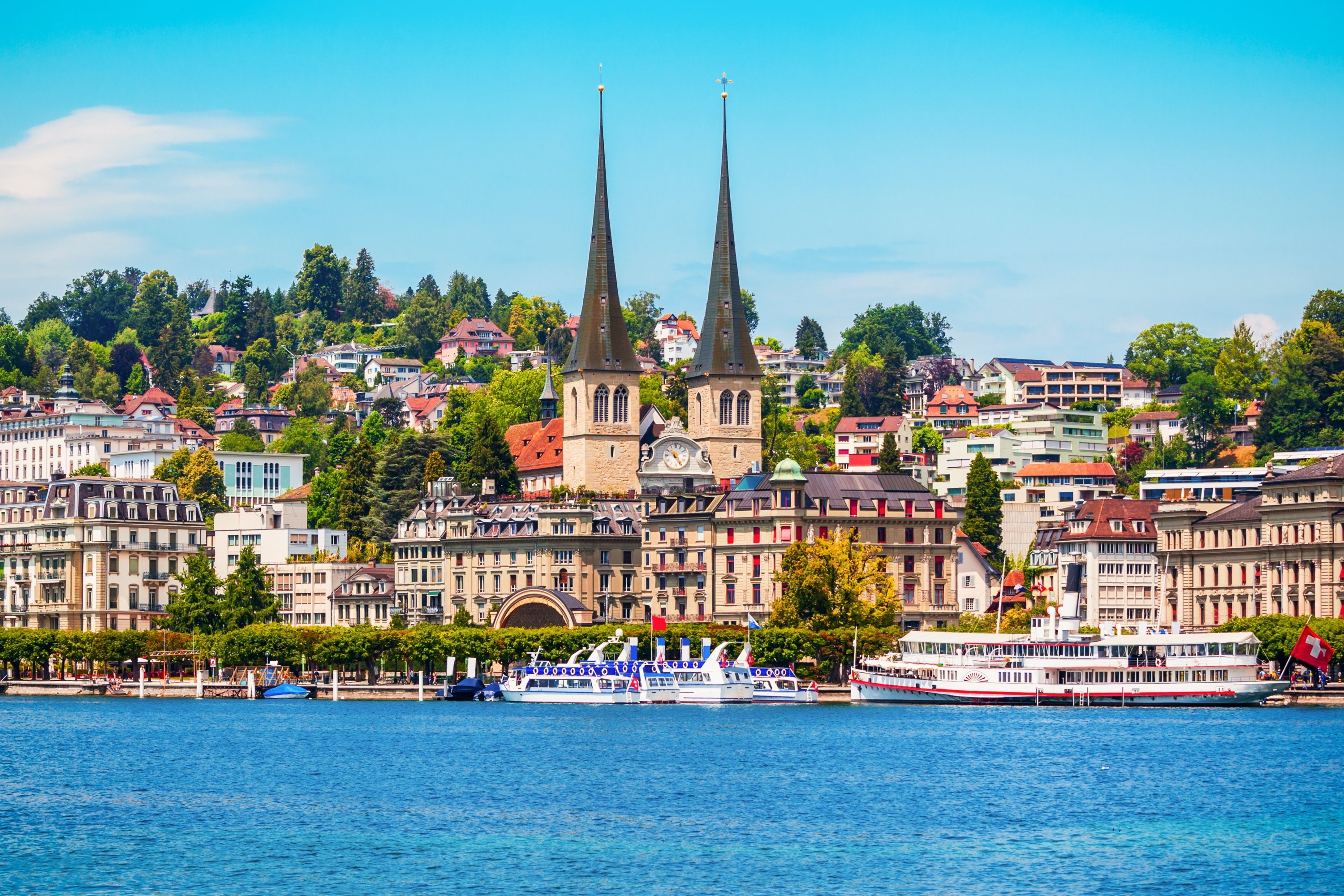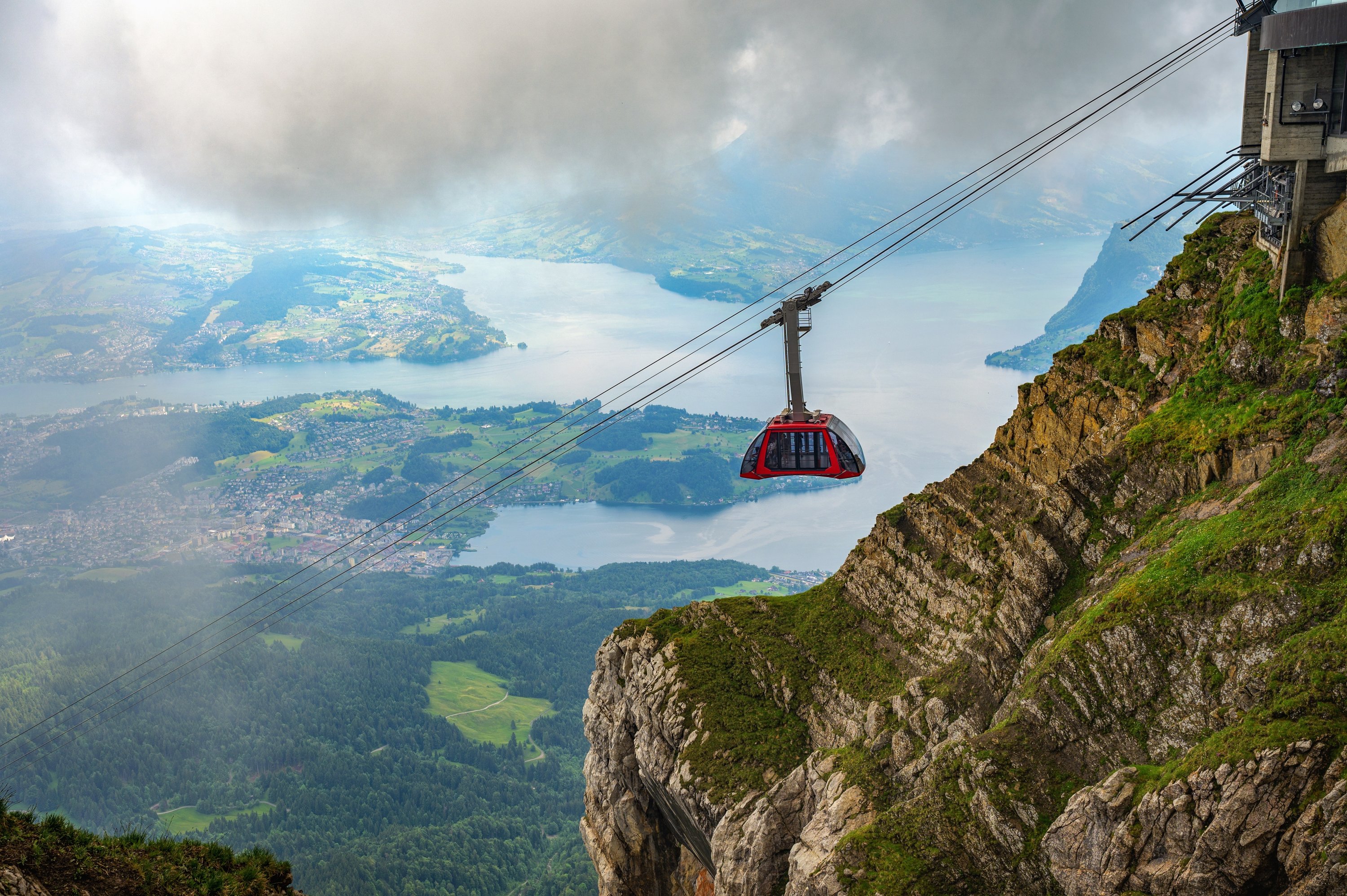© Turkuvaz Haberleşme ve Yayıncılık 2026
Welcome to the final post of my Swiss travel series. Lucerne, a city that left a profound impression on me, now holds the top spot on my list of Swiss destinations. I’ll share why it became such a standout experience.
Lucerne, ranked fourth in The New York Times' list of 52 places to visit worldwide last year, has already claimed first place in my personal ranking. Nestled on the shores of Lake Lucerne (also known as Vierwaldstattersee), where the mountain ranges of the Swiss Alps meet four different cantons, Lucerne was by far the most peaceful and rejuvenating stop on our trip.
It was so peaceful that, after experiencing Lucerne, we extended our stay from two days to three. During our stay, we embraced the local way of life. We woke up to a leisurely breakfast and coffee by the lake at our hotel, then took slow, relaxing walks along the lakeshore, letting ourselves sink into nature’s embrace. Lucerne, for me, is a place where time seems to slow down. If Lucerne had a voice, I believe it would tell you not to rush. Its atmosphere is so calming and peaceful that it naturally slows you down and that’s exactly what we did. Of course, we also made sure to visit some must-see places in the city. Here are a few recommendations for things to do in Lucerne, which made us feel like we were inside a perfect postcard.
Undoubtedly, the most iconic structure in Lucerne is Chapel Bridge (also known as Kapellbrücke), a medieval bridge dating back to the 14th century. Sadly, it was destroyed by fire in 1993 but rebuilt to mirror the original. With this fire, it also lost the title of the oldest bridge in Europe. The bridge, named after the nearby St. Peter's Chapel, offers stunning views from every angle. I lost count of how many times I took pictures of this bridge from different perspectives. Lucerne is a photographer’s paradise, so make sure to set aside time for plenty of photo opportunities during your visit.
Another site that left a lasting impression on me was the Hofkirche Cathedral, also known as the church of St. Leodegar. Located near the Chapel Bridge, it offers a fantastic view and is one of the most important Renaissance churches in both Lucerne and Switzerland. Its majestic appearance reflects its historical significance, making it an essential stop on any visit.

A poignant piece of history, the Lion Monument commemorates the tragic deaths of over 800 Swiss Guards who tried to protect King Louis XVI and his family during the French Revolution. With its sorrowful expression, the monument is considered by Mark Twain to be one of the most emotional sculptures in the world. The statue is located near a large pool, and it is said that tourists throw coins into the water while making a wish. The area was empty when we visited, but if you see others throwing coins, don’t be surprised!
For a panoramic view of Lucerne, head to the Musegg Wall, a well-preserved 13th-century structure that once played a key role in the city's defense. The wall features nine towers and while only a few are accessible to visitors, the most famous of them, the Zyt Tower, houses Lucerne’s oldest clock. The clock is notable for ringing one minute earlier than the others, which serves as a reminder of its historical importance.
Did you know that Lucerne once had a subtropical climate 20 million years ago? You can witness this incredible fact at the Glacier Garden, where fossils have been discovered that confirm Lucerne's subtropical past. The garden also features the famous Lion Monument and a maze of mirrors inspired by Alhambra, adding an extra layer of intrigue to this fascinating site.
After exploring these historical sites, be sure to take a leisurely walk along the lakeside path. End your day by enjoying a drink at one of the many spots with breathtaking views of Mount Pilatus, which sits majestically on the lake’s edge. Lucerne is a city you can easily explore on foot, though you may also opt for a bike if you prefer.
For those seeking accommodation, I highly recommend staying in or near the city center of Lucerne, as well as in nearby areas like Hergiswil, Littau, Kriens, Horw and Meggen. These locations offer stunning views and are home to beautiful spa hot with incredible Alpine mountain vistas. Our stay at a lakeside hotel in Hergiswil was truly unforgettable and added to the overall magic of our Swiss experience.
While in Lucerne, make sure not to miss a visit to Mount Pilatus, one of the region’s iconic peaks. At 2,128 meters above sea level, the highest summit, Tomlinson, is a must-see. You can reach the top via the world’s steepest cogwheel railway, which operates between May and November, or take the cable car, which runs year-round.

Reflecting on this Swiss journey, I realize I could never have condensed all my experiences into just three articles. As I mentioned in the first post, this trip sometimes gave me unforgettable moments; I found it hard to find the right words to describe what I felt and experienced. That’s why I urge you to add this itinerary to your must-do list. Lucerne has already made it onto our “places to visit again” list, and I’d love to explore it in the summer, adding activities like mountain sledding, panoramic train rides and cable car journeys to the mix. I can’t wait for my little one to grow up so we can take a more extensive Swiss trip and share the experience with you all.
